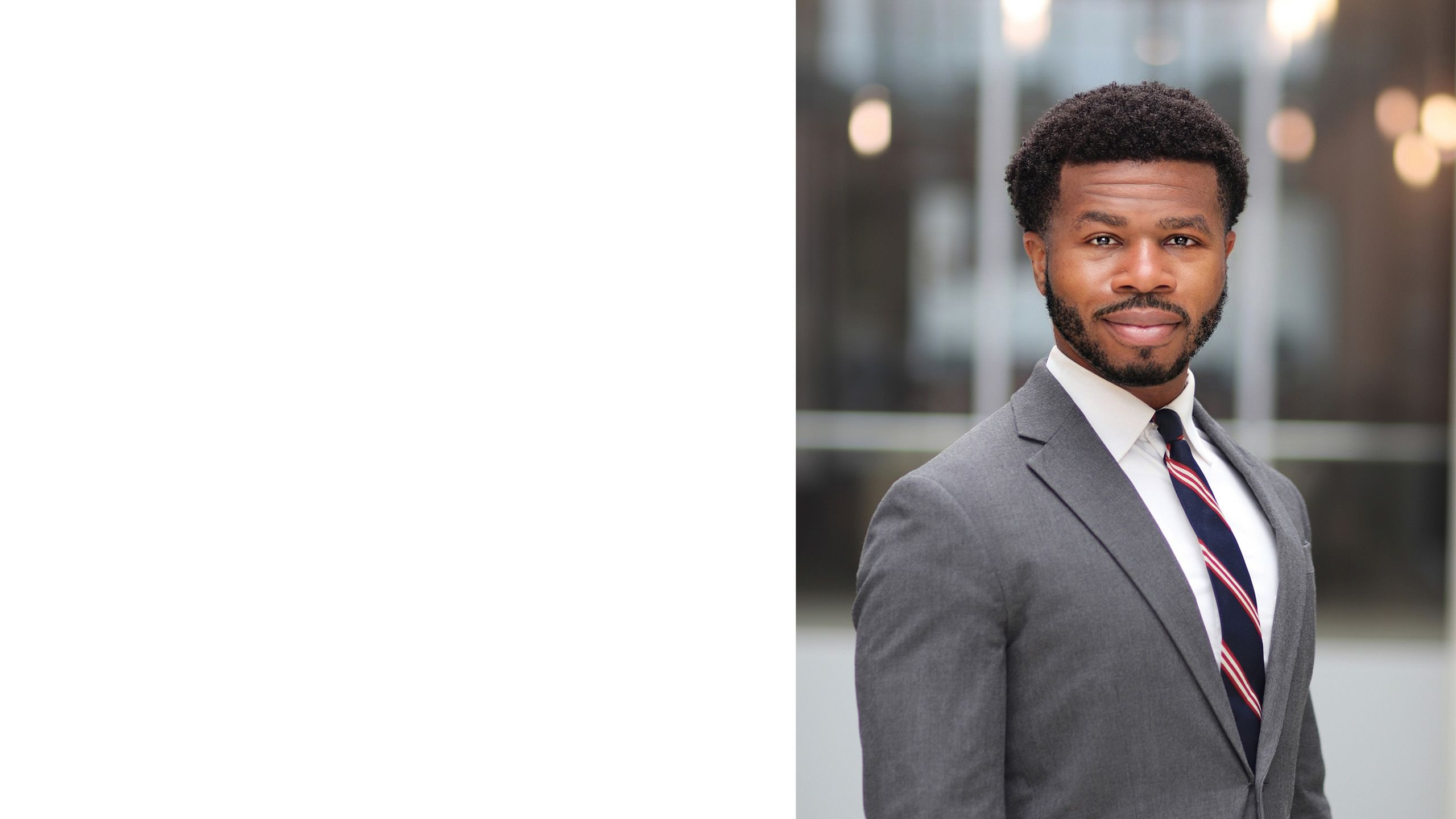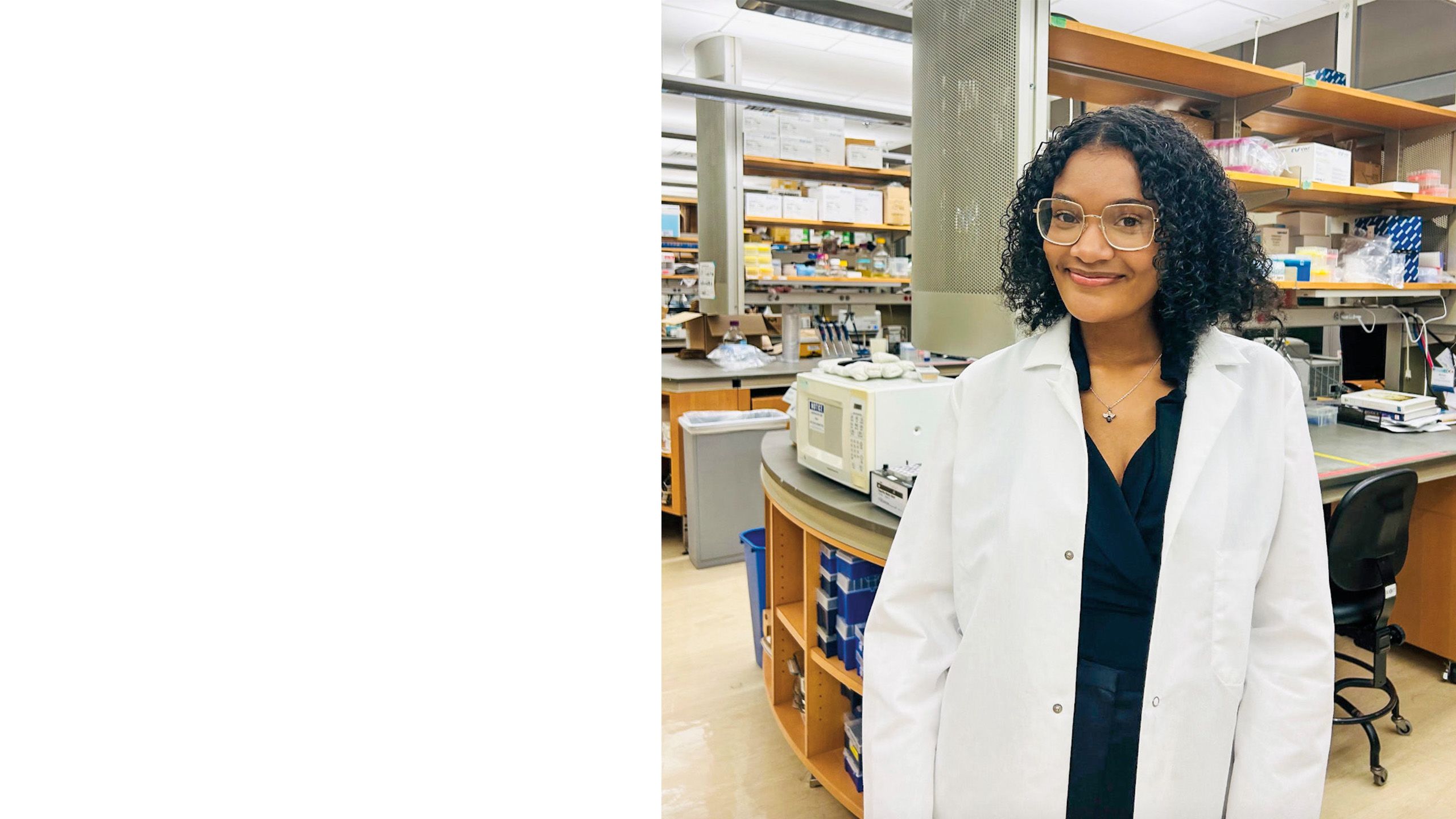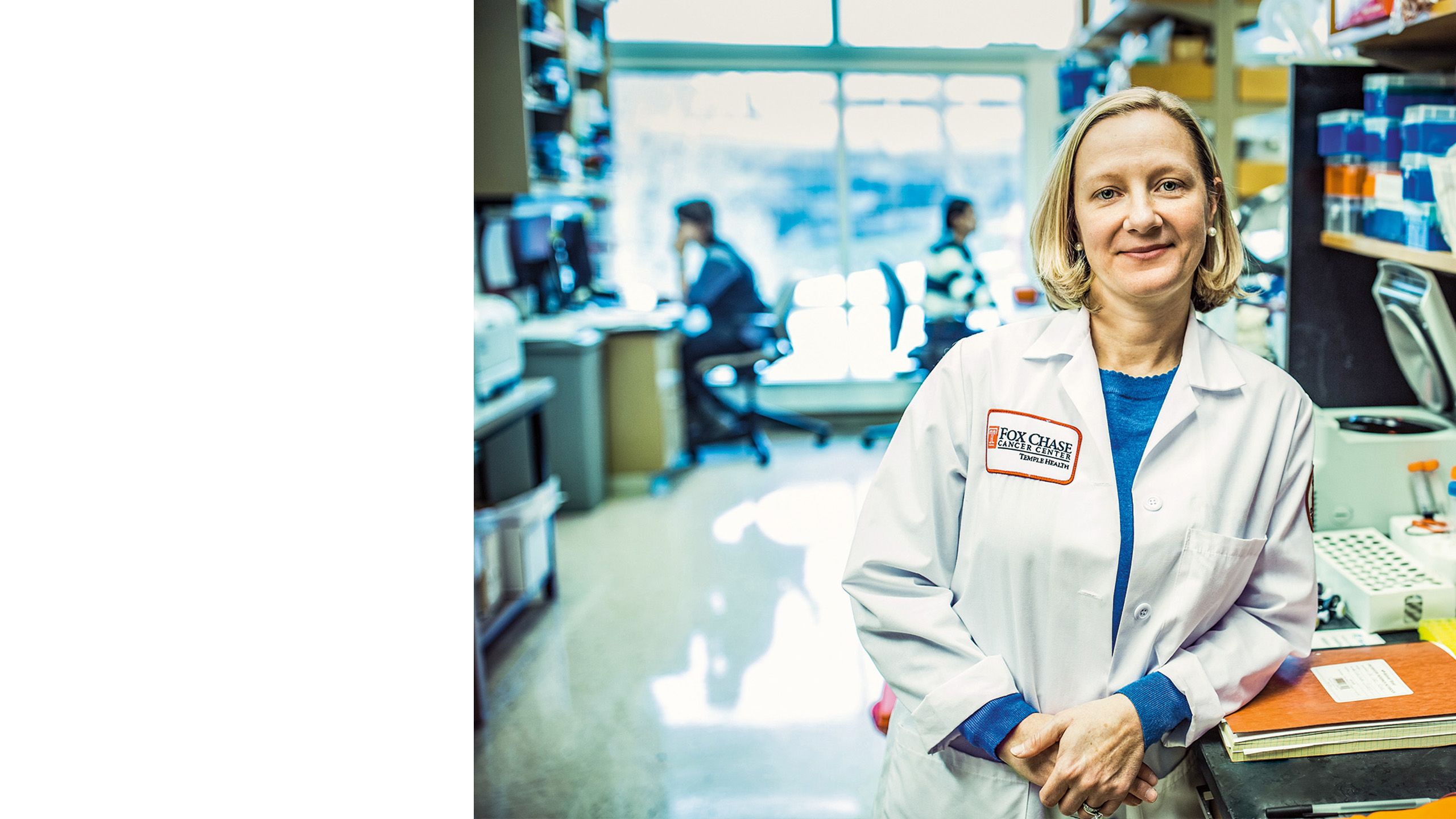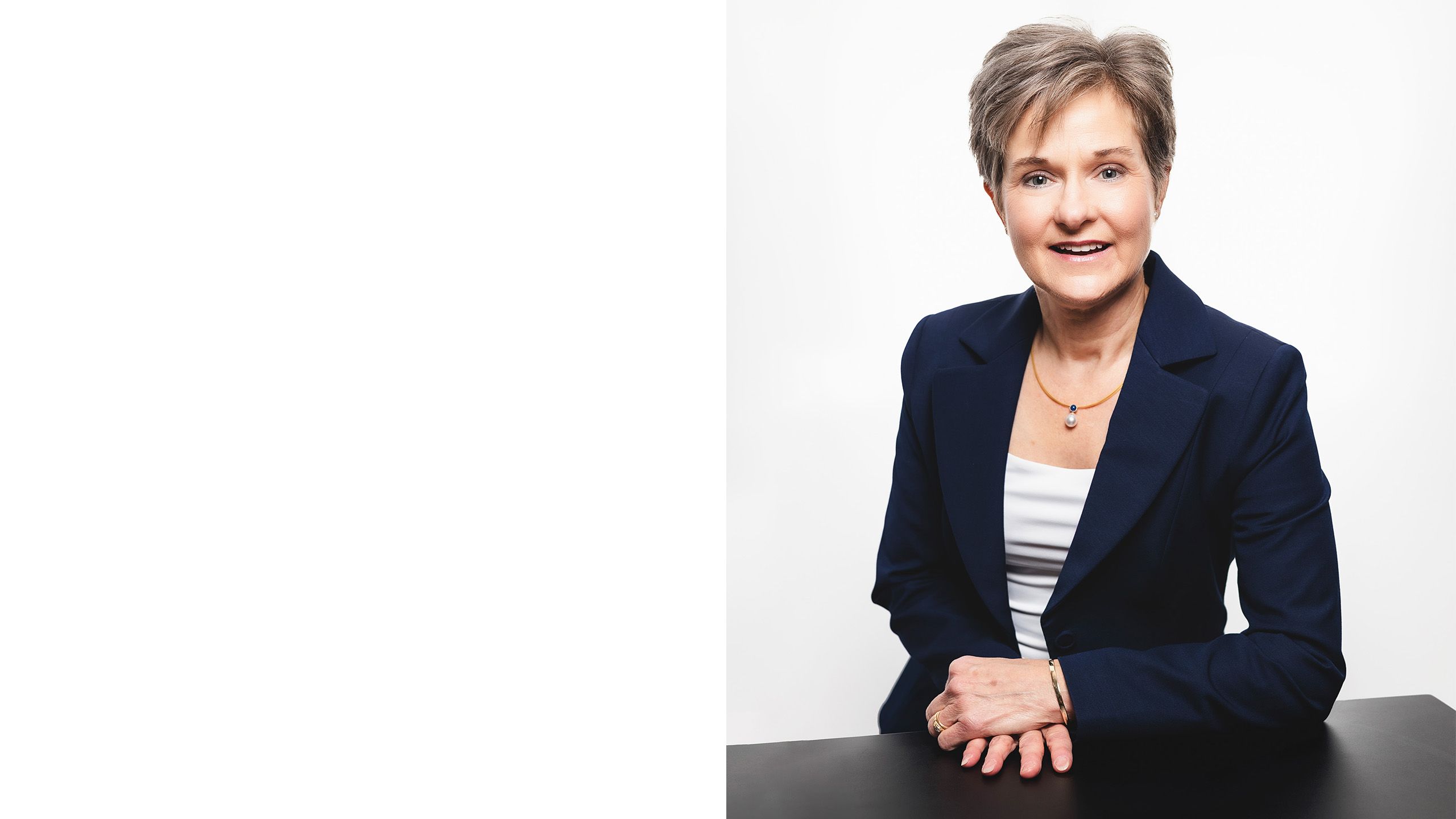TRAINING PROGRAMS
Mentoring the Next Generation of Scientists and Clinicians
Fox Chase Has Many Graduate Students and Postdoctoral Fellows in Its Labs, But It Also Features Programs for High School and Undergraduate Students
A Foundational Summer Fellowship
FRANKLIN IHEANACHO
Fox Chase Training Program: Empower Fellowship
Now: Medical Student
Where: Warren Alpert Medical School of Brown University

During my sophomore year at the University of Delaware, I had an interest in breast cancer research, which I explored by volunteering in a lab at ChristianaCare’s Helen F. Graham Cancer Center & Research Institute in Newark, Delaware. However, I craved a deeper experience, which led me to apply in 2017 for the inaugural Fox Chase Cancer Center Empower Fellowship, an 11-week program that provides a full-time, immersive summer paid research opportunity to select students from the University of Delaware with limited laboratory experience.
“The Fox Chase Empower Fellowship was pivotal in my journey. It gave me the confidence and clarity to apply, and be accepted to, the Warren Alpert Medical School of Brown University. ”
I still recall my initial tour at Fox Chase, where I saw the array of labs and research animals. My enthusiasm must have been evident, as I was selected as one of the first Empower Fellows.
My summer at Fox Chase was transformative. Under the mentorship of Erica Golemis, PhD, who is now the Associate Director for Systemwide Integration at Fox Chase and Senior Associate Dean of Research at the Lewis Katz School of Medicine at Temple University, I studied the impact of chemotherapies on cilia using specific cell lines. I gained experience in microscopy, cell culture, and high-throughput screenings, and attended numerous lectures on innovative research techniques. I absorbed as much knowledge as possible, jotting down details during every session.
The Fox Chase Empower Fellowship was pivotal in my journey. It gave me the confidence and clarity to apply, and be accepted to, the Warren Alpert Medical School of Brown University, where I continue to explore loco-regional treatments in oncology.
My experiences at Fox Chase continue to shape my aspirations in interventional radiology, particularly in interventional oncology. Without that foundational summer, I doubt I would be on my current trajectory toward making meaningful contributions to cancer treatment.
An Inspiring TRIP
CHARITY ROBBINS
Fox Chase Training Program: Teen Research Internship Program (TRIP)
Now: Undergraduate Student
Where: University of Pennsylvania

My first experience with Fox Chase Cancer Center was when I volunteered in the lab of Amanda Purdy, PhD. Then, during my junior year at George Washington Carver High School of Engineering and Science in Philadelphia, I maintained fruit flies and beta-tested assays for the Teen Research Internship Program (TRIP) at Temple University under the mentorship of Alyssa Leystra, PhD. These experiences were particularly inspiring as they were my first time working in labs led by women.
“Reflecting on my journey, I recognize TRIP’s pivotal role in nurturing my love for research. … TRIP not only shaped my scientific path, but also inspired my commitment to research and science communication. ”
Upon the conclusion of my internship, I was thrilled when they asked me to stay and manage the TRIP social media accounts and website. My enthusiasm for the program only grew, leading me to participate in TRIP that summer and conduct my own research on the effects of Diet Coke on developmental memory. This research internship was transformative, sparking a deep passion for scientific inquiry and solidifying my desire to pursue research as a career path.
The following summer, I interned at a pharmaceutical lab at St. Joseph’s University, where I investigated the role of GABA A in triple negative breast cancer, which resulted in my first publication. Despite this new commitment, I eagerly continued supporting TRIP, spreading awareness of science opportunities for teens through social media.
Now, as a sophomore at the University of Pennsylvania pursuing a degree in biochemistry, I work in a cell biology lab studying how astrocytes clear damaged mitochondria. Reflecting on my journey, I recognize TRIP’s pivotal role in nurturing my love for research. Beyond the lab, my experience managing TRIP’s outreach fueled my passion for making science accessible and mentoring students, values deeply influenced by Dr. Leystra and Dr. Purdy. TRIP not only shaped my scientific path, but also inspired my commitment to research and science communication.
From Mentee to Mentor
LORI RINK, PHD
Fox Chase Training Program: Postdoctoral Fellowship
Now: Associate Professor, Cancer Signaling and Microenvironment Research Program
Where: Fox Chase Cancer Center

Icame to Fox Chase Cancer Center in 2006 fresh out of graduate school as a brand-new postdoctoral fellow to work in the laboratory of Andrew Godwin, PhD, who is now at the University of Kansas, in the early days of personalized medicine.
I was motivated and inspired during my graduate studies at Temple University’s College of Science and Technology by the discovery, and Food and Drug Administration approval of, the first targeted small molecule inhibitor, imatinib mesylate, also known as Gleevec. It revolutionized treatment for patients with chronic myeloid leukemia and gastrointestinal stromal tumor (GIST), the most common sarcoma of the GI tract.
“The rich, collaborative research environment at Fox Chase provided me with the skills needed to run my own translational sarcoma lab, which is focused on studying mechanisms of resistance to targeted agents and the identification of novel targets that could treat these sarcomas. ”
I chose to continue my training at Fox Chase because it was a National Cancer Institute-designated Comprehensive Cancer Center with a sarcoma center of excellence and a clear focus on translational and clinical research.
Fox Chase had a long history of making seminal contributions through bench to bedside research, including being one of only four institutes worldwide to enroll GIST patients onto the groundbreaking clinical trial that led to Gleevec being approved for the treatment of GIST. Gleevec has changed the lives of many patients, because prior to its approval, the only option for patients with GIST was surgery.
During my postdoctoral studies, I was fortunate to work with and learn from the multidisciplinary, collaborative sarcoma team and to lead correlative studies as part of the research arm of these clinical trials.
The rich, collaborative research environment at Fox Chase provided me with the skills needed to run my own translational sarcoma lab, which is focused on studying mechanisms of resistance to targeted agents and the identification of novel targets that could treat these sarcomas.
As an Associate Professor at Fox Chase, I take great pride in mentoring the next generation of scientists in my lab because I realize how foundational this training was for my career.
The ‘Secret Sauce’ for a Career in Pharma
CARETHA L. CREASY, PHD
Fox Chase Training Program: Postdoctoral Fellowship
Now: Vice President, Early Development
Where: UroGen Pharma

As early as my undergraduate years, I had an interest in working in the biotechnology industry. In considering a postdoctoral fellowship to prepare me, I wanted to expand from studying basic cellular mechanisms in yeast to more complex mammalian systems.
“My time at Fox Chase was probably the most productive of my career. The park-like setting, the warmth of faculty, staff, and students, and the small lab group were just right for me. ”
When I found out about the postdoctoral program at Fox Chase, I was intrigued. Their interview process allowed me to meet several investigators with openings. This unique approach exposed me to diverse research areas and was how I met Jonathan Chernoff, MD, PhD.
Jonathan was relatively new to Fox Chase and looking for his first postdoc trainee. He was working in mammalian signal transduction, an area of special interest for me. Those who know Jonathan know that he can be persuasive, and he allowed me to see how my experience in yeast would complement the focus of his lab. I found it easy to make the decision to come to Fox Chase.
My time at Fox Chase was probably the most productive of my career. The park-like setting, the warmth of faculty, staff, and students, and the small lab group were just right for me. Jonathan always made himself available to discuss data, challenge my thinking, and mentor me. There was a saying in the lab that stuck with me: “go faster by slowing down.” This is the “secret sauce” that I return to again and again.
I was very fortunate to be offered an investigator position at the pharmaceutical company SmithKline Beecham, now GSK, early in my search for a permanent position. I spent less than three years at Fox Chase, but my training and research there set me up perfectly for my new position — using yeast and mammalian systems to identify new drug targets. During my 25-year career at GSK, I continued to build on my past experiences to learn and adapt to new roles and challenges. This allowed me to move from bench scientist to lab director, to drug discovery leader, and then to clinical drug development leader.
I now work as Vice President of Early Development at UroGen Pharma, a small biotech company. While clinical development of drugs to treat cancer seems like a long way from my training in basic cellular mechanisms, I use the skills that I developed during my training every day.

